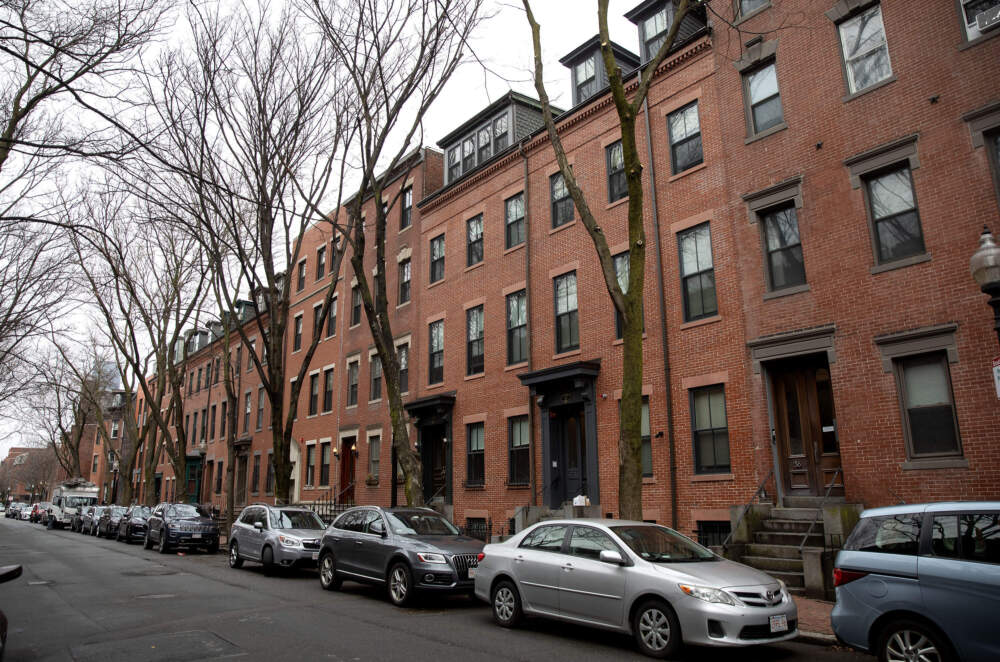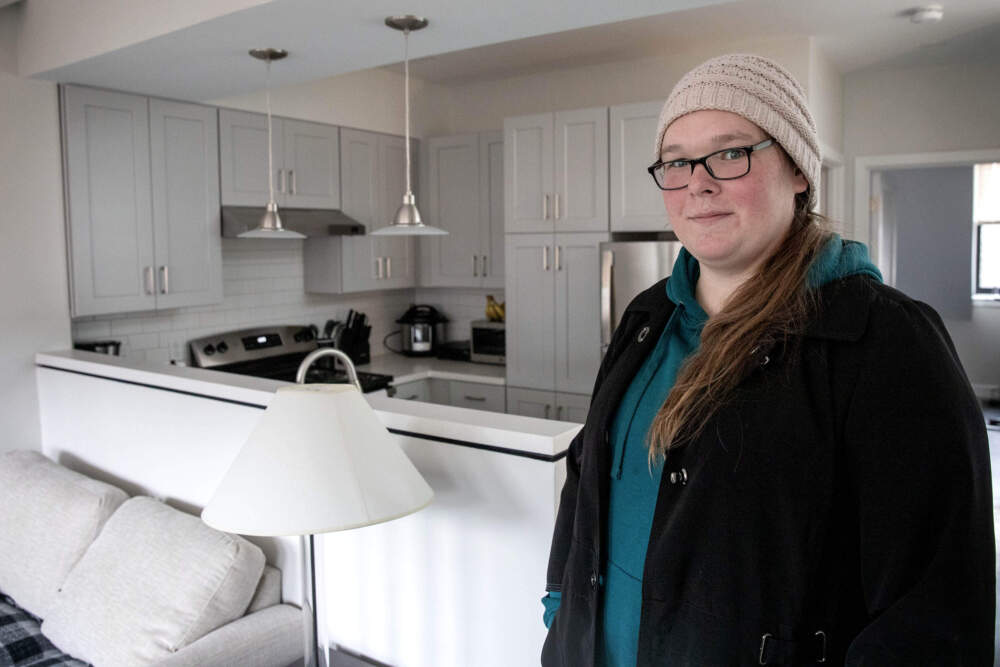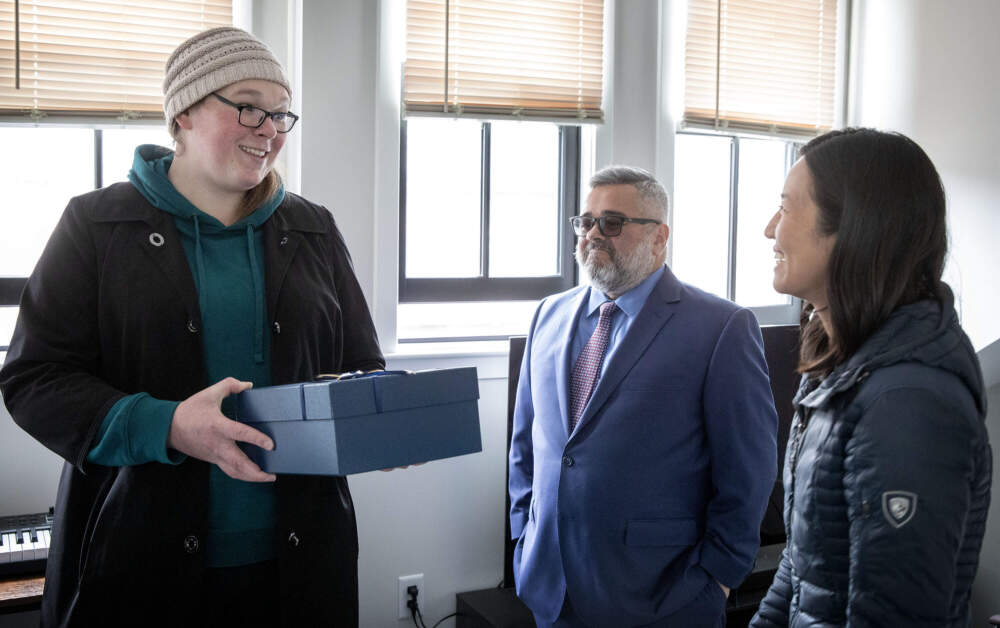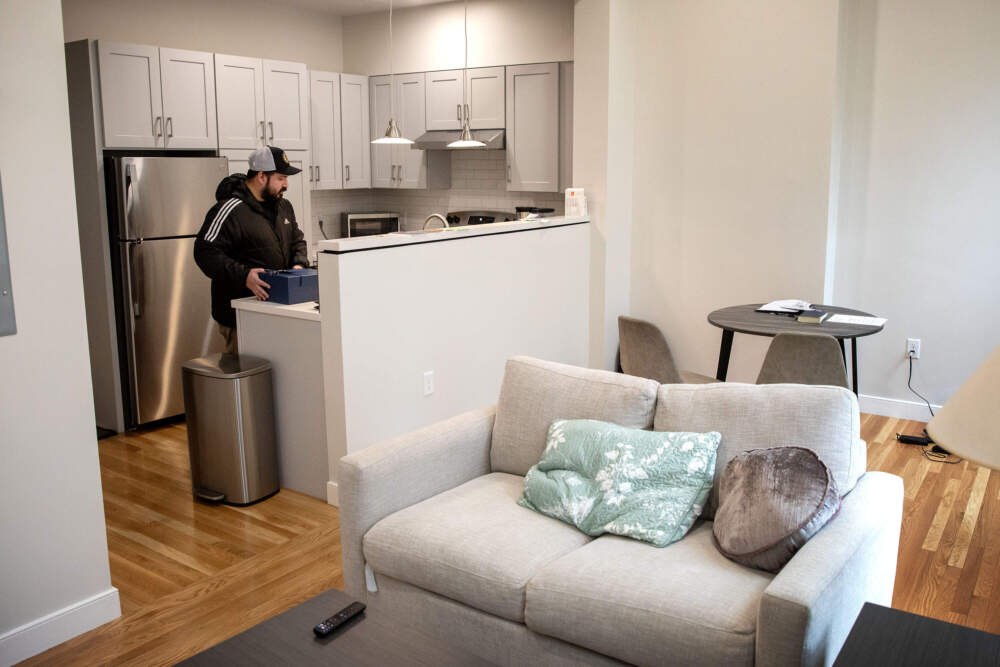Advertisement
A long-vacant South End rowhouse has been converted into subsidized apartments for homeless veterans

A 19th-century rowhouse in Boston's South End has been converted into five affordable apartments for veterans who've experienced homelessness.
The Boston Housing Authority owned and operated the building on East Springfield Street for many years starting in the 1980s. But after a fire 15 years ago, it sat vacant and fell into significant disrepair.
BHA Administrator Kenzie Bok said the housing authority originally thought it would just sell the property on the open market and walk away, because it would be so expensive to repair. But officials wanted "viscerally" for veterans to be able to obtain affordable housing in a neighborhood rich in amenities that might otherwise be out of reach for them financially, she said.
"We can't just have huge, many-hundred-unit developments and then nothing for blocks and blocks and blocks," Bok said. "It's got to be really mixed in. And so ... whenever we can kind of take a gem like this and turn it into something, it's huge."
The housing authority selected a private firm, MPZ Development, to turn the building into the permanent supportive housing units for vets. MPZ now owns and manages the property.
The building's opening comes as overall homelessness, including unsheltered homelessness, has risen in Massachusetts and nationwide over the last couple of years. The rate of veteran homelessness in the U.S. declined for a number of years through 2022, however.
In last year's homeless census in Boston — the most recent year for which data are available — 190 veterans were found to be homeless in Boston. That was a 6% increase from the previous year. City officials reported at the time that Boston had reduced veteran homelessness by 58% since 2015.
On Wednesday, Mayor Michelle Wu, Bok and other local officials held a "welcome home" celebration for the five veterans who recently moved into the newly-renovated building.
Army veteran Marissa Troupe, 29, is one of the tenants. She was homeless for months last year after a problem with a roommate.

"I moved into my car and then had to get rid of it shortly after because of mechanical issues," Troupe said.
Now, she has a case manager who will help connect her with any support services she needs, and she pays 30% of the income she earns as a dog walker for rent.
"It allows me to live, truthfully," Troupe said. It gives me the opportunity to afford a home on my own. I mean, rent is so expensive."
A previous case manager helped connect her with therapy for post-traumatic stress disorder.
Troupe led Wu and the other visitors up several flights of the building's narrow staircase to her brand new, modern one-bedroom apartment, which she's furnished with a loveseat, flat screen TV, small dining table, bed and exercise bike. Wu presented her — along with the other vets in the building — a gift box of housewares, including cutting boards and dish towels.

BHA, city and philanthropic funds, along with historic property tax credits, paid for the $4 million housing project. Housing vouchers from the U.S. Department of Housing and Urban Development-Veterans Affairs Supportive Housing program (HUD-VASH), distributed by the BHA, subsidize the vets' rents. The federal program also funds the support services.
A change the BHA made several years ago, under a HUD rule change — to have housing vouchers align with the median income for the specific zip code in which the housing is located, as opposed to the median income for the region — helped make the project possible, Bok said.
"It helps us underwrite more affordable housing in expensive neighborhoods, which is so key to having an integrated Boston and really having opportunities in every neighborhood," she added. "We see this project as a real promise of more things to come."

Wu said even five new units of affordable housing is an important step given the extent of the city's housing crisis.
"Every single unit in Boston is so precious, and as we are trying really hard to update our zoning code and improve our processes and use city land to add more units, we also desperately need to maintain the ones that already exist."
According to MPZ Development, the building is part of a series of Italianate-style rowhouses that were built during the South End’s development in the mid-19th century. East Springfield Street is part of the City of Boston’s South End Landmark District, which is listed on the National Register of Historic Places.
